Health
Genetics & Genomics Research Dissemination; Makerere Bioethicists Emphasize the Importance of Community Engagement
Published
3 years agoon
By
Mak Editor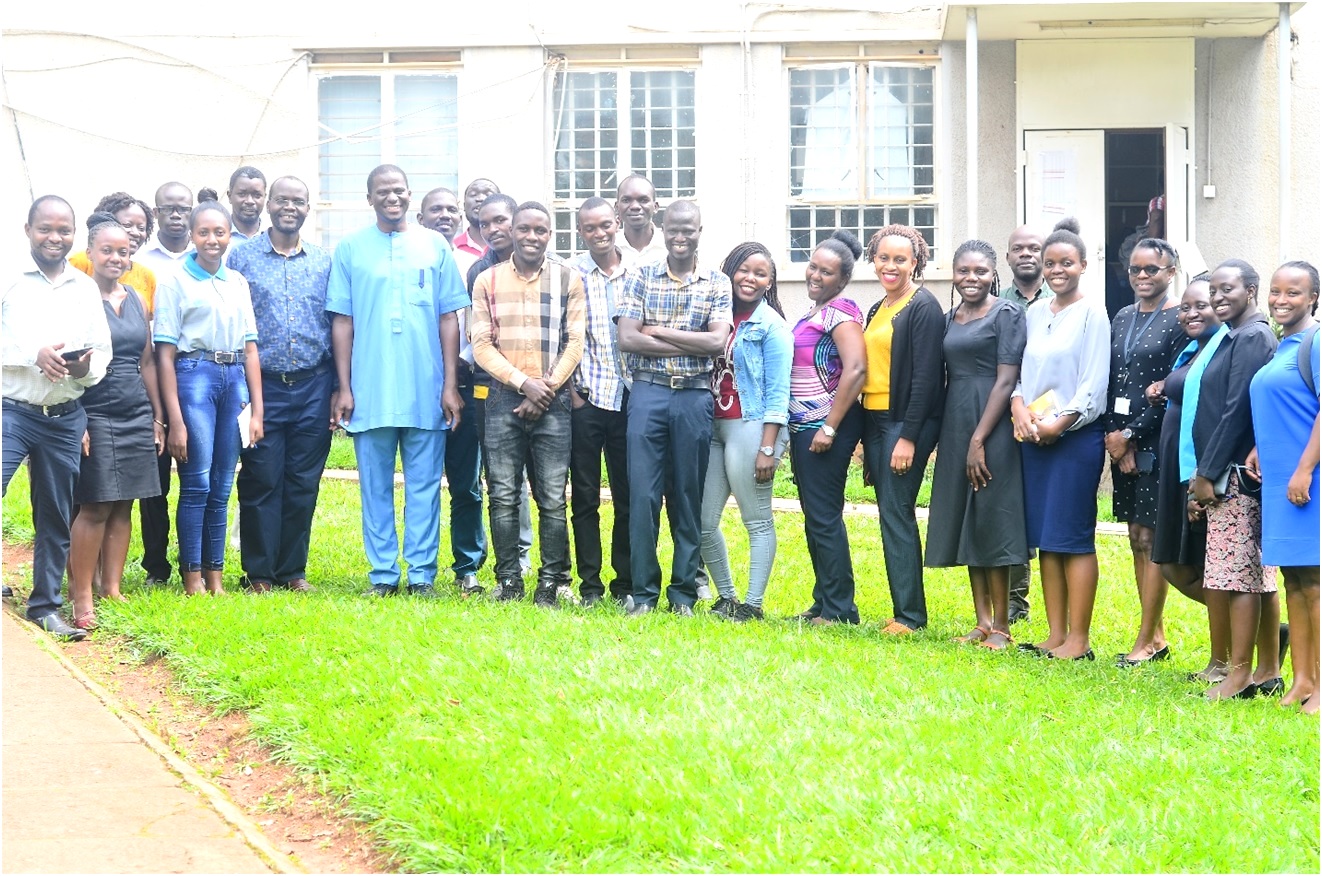
By Joseph Odoi
As Genetics research continues growing in Uganda, Bioethicists from Makerere University College of Health Sciences have stressed the importance of community engagement, genetic counselling and Public sensitization when conducting Genetics research in Uganda.
These recommendations were made at a research dissemination workshop held on the 8th December 2022 at Makerere University College of Health Sciences.
While presenting findings of the ELSI-UG project titled “Ethical and social issues in informed consentprocesses in African genomic research”, the Project Principal Investigator -Associate Professor Mwaka Erisa Sabakaki from College of Health Sciences, Makerere University in a special way welcomed participants to the dissemination. He noted that involving communities in genetics and genomics research is very important when it comes to enhancing the understanding of genetics and genomic information by the general public.
‘’There has been an exponential increase in genetics and genomic research in the last two decades.
However, this field of research is complex and is poorly understood by various research stakeholders. One way of enhancing understanding of genetics and genomic information by the general public is through community engagement. It is therefore crucial that communities are meaningfully involved in research processes right from conception. Community engagement provides a two-way communication channel through which researchers gain better understanding of community priorities, preferences, traditions, practices, and cultural sensitivities.’’ explained Prof. Mwaka.
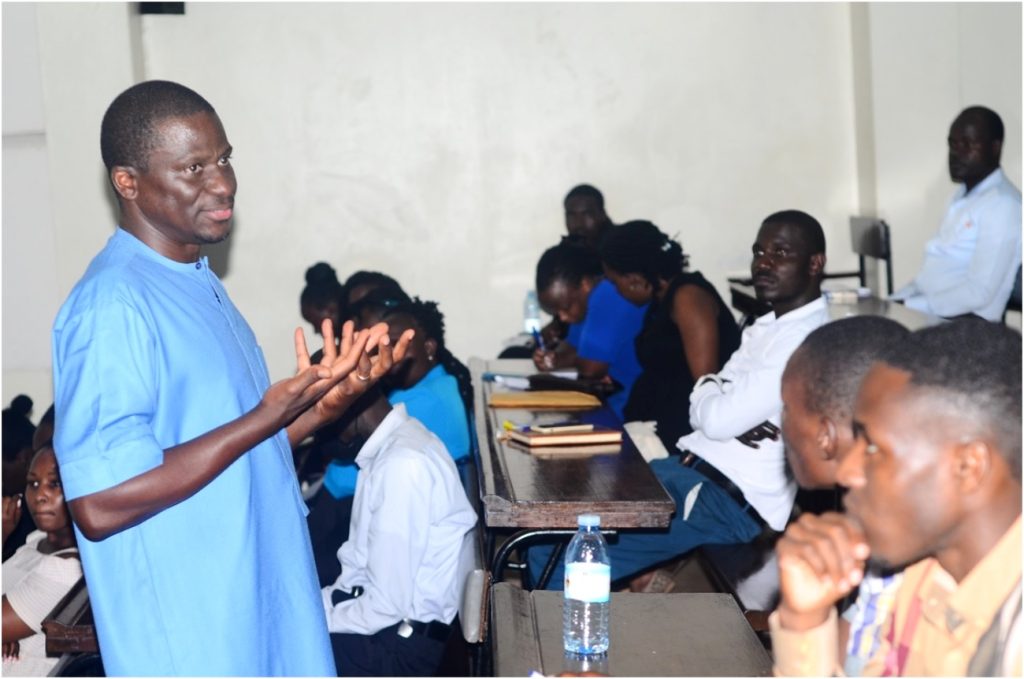
He equally highlighted the need for translation of scientific language into local languages, genetic counsellors and consent in Genetics research adding that community engagement is crucial in building equitable research collaborations and trust between researchers and research communities.
Genetic and Genomics
According to National Institute of General Medical Sciences, Genetics is the scientific study of genes and how certain qualities, conditions or traits are passed from parents to their off springs. Genomics on the other hand involves using information about genes to: identify genetic disorders including future diseases so that doctors tailor treatment for individuals.
In same spirit, Dr. Moses Ochan, the Vice Chairperson of the Makerere University Research and Ethics Committee stressed the importance of sensitization of communities and researchers before any study is undertaken. According to him, sensitization enables communities understand the advantages and disadvantages of participating in a study thus making informed decisions.
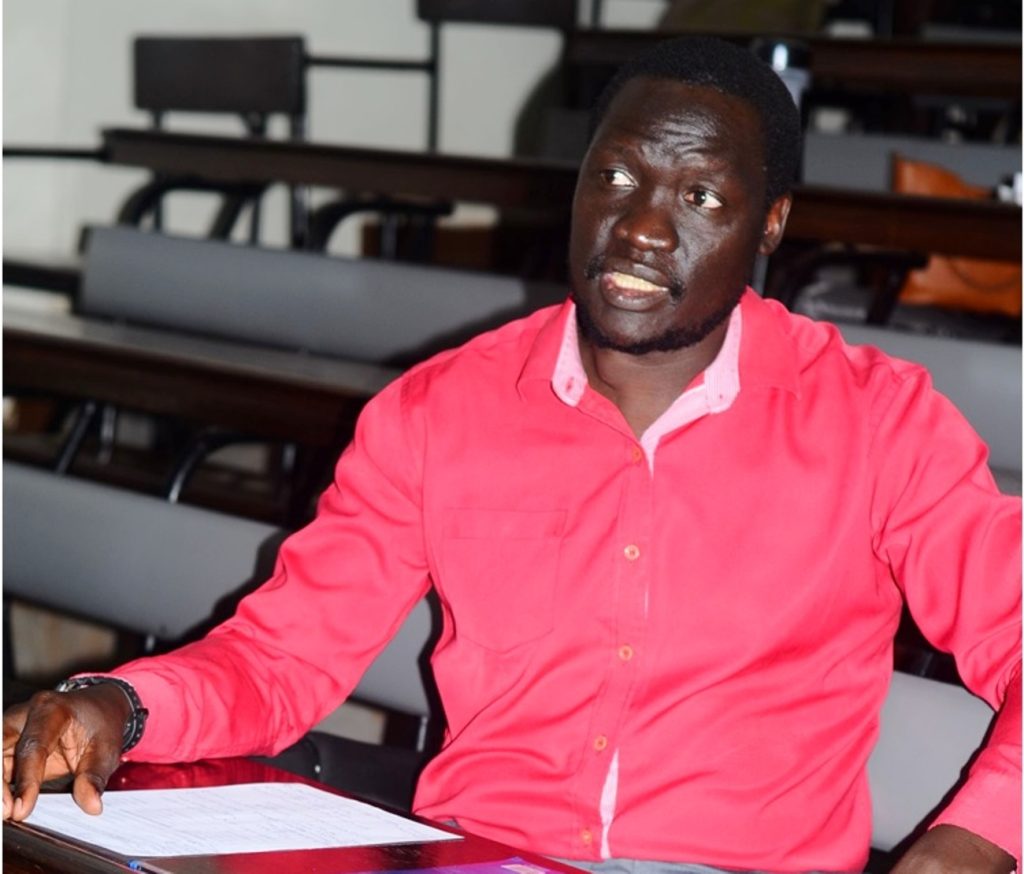
In this United States National Institutes of Health funded study that sought to explore the knowledge,perceptions and experiences of stakeholders; researchers, bioethicists, REC members, research participants and caregivers/guardians on the informed consent process, and the ethical, legal and social implication of genomic research, 243 protocols were analyzed involving both local and international researchers
Findings
Return of individual genetic results to research participants
- Of 122 parents/caregivers of adolescents in the study, 77.1 % expressed the desire to receive all results of their children’s genetic/genomic results.
- 71.3 % of parents/caregivers agreed that children should be able to take part in research testing for genetic conditions that begin during childhood, even if there is no treatment that can alter the course of the condition
- 85.3 % of parents/ caregivers expressed the desire to know genetic research results about children to see if they are more likely to get a disease in the future.
- 71.3 % of parents/ caregivers agreed that Children should be able to take part in research testing for genetic conditions for which there is a treatment that begins during childhood that can alter the course of the condition
- 62.3 % of parents/ caregivers agreed that children should be able to take part in research testing for genetic conditions that start in adulthood and have no treatment that can alter the course
- 89.4 % of parents/ caregivers agreed that children should be able to take part in research testing for genetic conditions that will arise in their adult years, only if there is treatment or prevention that should begin in childhood
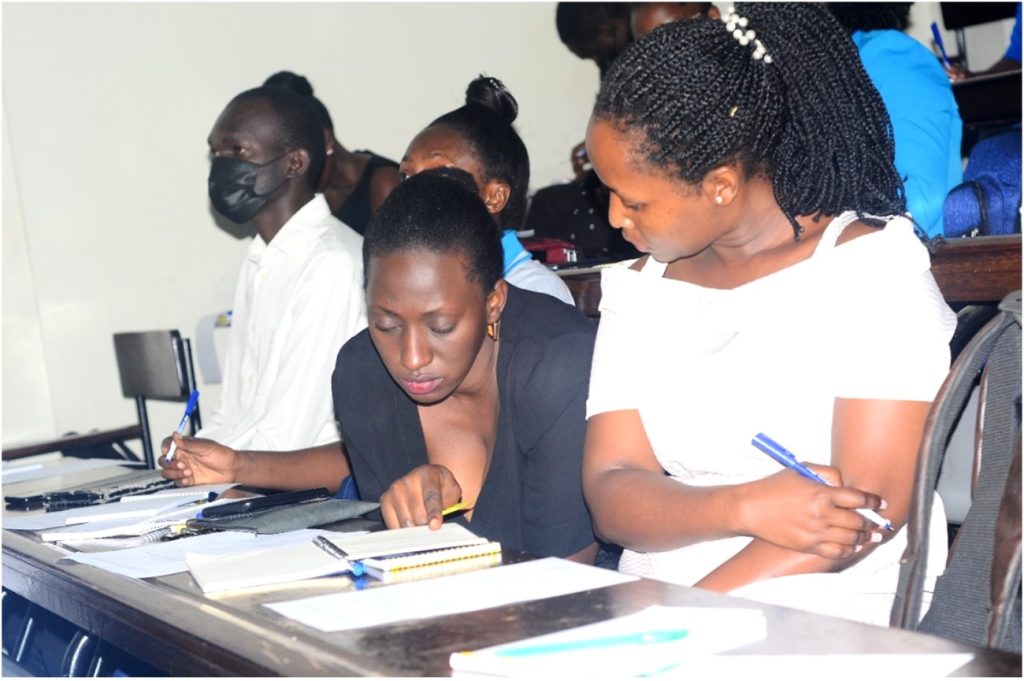
On the most important issues parents should consider in deciding whether or not to get genetic research results, 81.2% cited distress knowing that there are potential problems for other family members. Additionally, 45.0 % of parents and caregivers noted that receiving their child’s genetic results might worry their family; and 27.8% worried about stigma and discrimination
To address this, 69.2 % of parents and care givers said genetic counselling should be offered prior to a sample being taken to do genetic research
On perceptions on returning individual results of genomic research, parents and caregivers indicated that It is the researchers’ moral obligation to return clinically significant results; as such, genetic results should be communicated to them by the study doctor. Most parents preferred being informed first before involving the children; and some mothers expressed the desire to exclude the child’s father from these discussions until they (mothers) have understood the implications of the results in question.
On the role of children in making decision makings on whether to regarding return of genetic results or not, there was no consensus on the ideal age for disclosure of results. Some parents and caregivers pointed out that involvement of children in these discussions should depend on child’s character, level of understanding and ability to cope with the implications..
On handling findings that have familial implications, there were mixed feelings about involving other family members. Parents, especially mothers expressed fear of attribution. They thus suggested that the biological parents of the child should be the first ones to receive these results and then decide whether to involve other family members.
On the perceived challenges to return of results, parents and caregivers cited protracted delays in communicating genetics/genomics results; difficulty in tracing the child’s family, especially when the parents die and they are being cared for by other caregivers; risks of knowing unpleasant findings and paternity disputes.
Parents and caregivers offered several suggestions for the safe return of results of paediatric genomic research and these included the need to organize peer support and sensitization activities for adolescents participating in genetic studies; feedback of results should be done by a multidisciplinary team comprising of clinicians, genetic counsellors, the child and parents. All concurred that other family members should be involved at a later stage.
Informed consent and sharing of biological samples in collaborative genomic research and biobanking
On consent to future use of samples, 88.8% of the 187 researchers that participated in the study indicated that there is need to provide donors with the option to consent. 62% indicated that informed consent forms should include multiple options regarding the types and conditions of future research for which the samples may be used (tiered consent). 6.2% said that participants should only consent for the current study, and any future studies on the stored samples would require re-consent. However, the majority of researchers felt that the need to reconsent places an unacceptable burden on the researchers (62%) and is prohibitively costly (59.4%)
On informed consent experiences and practices, it was found that most principal investigators (12/15) were not well conversant with the informed consent procedures of their respective studies because they delegate this to study coordinators and nurses/nurse counsellors. Most nurses/nurse counsellors lacked basic knowledge and understanding of genetics, including the risks of genetic research.
On Information disclosure, researchers noted that genetic research is complex and oftentimes research participants do not adequately understand the information disclosed them during the consenting process. They thus recommended the use of an iterative approach that encourages consultation with family and/or people research participants trust, use of simple language, use of visual aids and other media, and objective assessment of comprehension. The also reiterated the need for translating informed consent documents into local languages and the use of peer educators. Researchers emphasized the role of community engagement in community education and sensitization, ensuring that researchers respect local cultural values and beliefs, and dispelling of superstitions and misinformation.
- The perceived challenges to the informed consent process included, the poor quality and inaccuracy of translations of ICF into local languages, inadequate understanding of informed consent, limited understanding of genetics by communities and some research team members, lack of professional genetic counselling services in Uganda, and mistrust of foreign collaborators.
On Export of human biological materials (HBM), researchers had a positive attitude towards the export of samples and expressed a desire for collaborative partnerships in genetics/genomic research and bio banking that are characterized by mutual respect and equity. However, they raised several concerns:
- They seem not to be well conversant with the guidance provided by the national ethics guidelines on bio banking and
- They all concurred that material transfer agreements (MTA) are key in the transfer of human biological materials across the national borders. However, they surmised that these MTA are unfair and tend to favour international Collaborators. They felt that local researchers and research institutions are not empowered enough to bargain favorably during MTA negotiations. They also indicated that the national ethics guidelines are vague on role of RECs in MTA and data sharing agreement development. Furthermore, they indicated that Uganda lacks appropriate enabling ethical and legal frameworks to protect the interests of local scientists and research institutions
- On sharing of the benefits of research, the researchers felt the ground was not leveled and there was neither equity nor fairness in sharing of GBR benefits in international collaborative research. They attributed this to the lack of scientific integrity and questionable research practices by collaborating researchers, lack of effective communication between collaborating partners, denial of access to shared data and samples by Northern collaborators, and felt that the oversight function of UNCST during MTA implementation is limited.
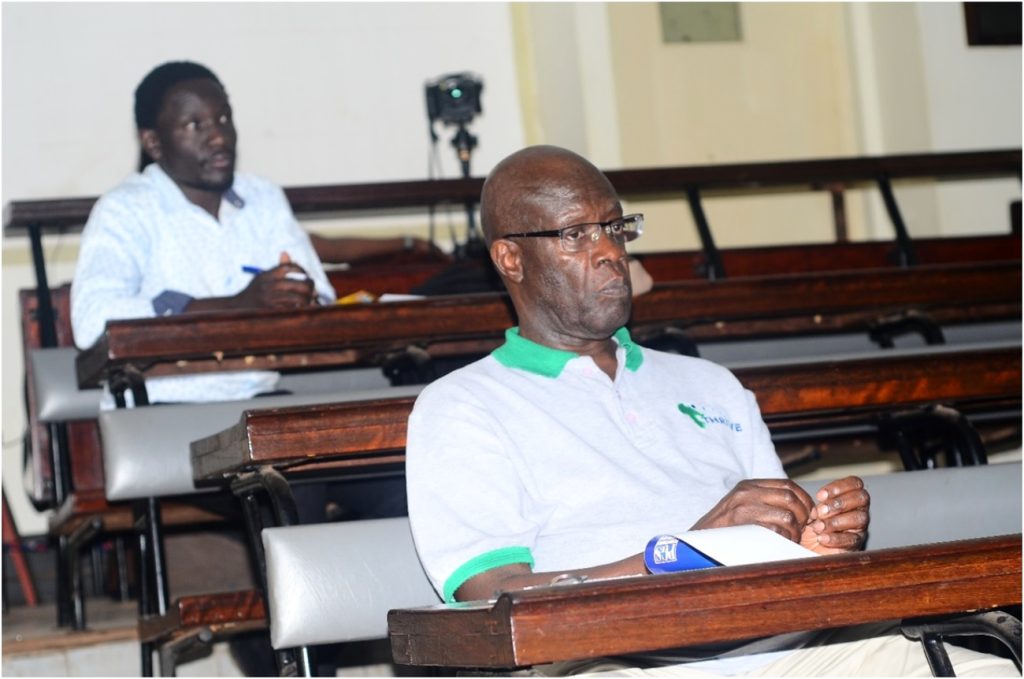
To address the issues at hand around genetics and genomics research, they made the following recommendations;
Recommendations to enhance comprehension of informed consent for genetic/genomic research and biobanking
- Escalating community engagement: to sensitize the general public and educate them on genetics research and its implications
- Iterative approach to informed consent where participants are given ample time to read/be read to consent information, ask questions, make consultations with family and trusted persons
- Encouraging the use of simple language and various media during information disclosure.
- There is need for harmonization of translations. A dictionary of translated key scientific and medical terms/concepts in research and clinical care in local languages should be developed
- Develop specific national guidelines for genetic and genomic research in Uganda.
- Research ethics committees should be trained in the basics of genetic research in order to ensure that they appreciate the ELSI and are competent enough to review genetic research.
- The use of checklists for assessing understanding of consent should become mandatory and should also be included in the national ethics guidelines.
- All stakeholders should read and understand the available national and international guidelines, policies, and regulations pertaining to genetics/genomic research and bio banking before negotiating Material transfer agreements.
- Research ethics committees should be empowered to review and monitor the execution of MTAs during research implementation, and this should be clearly stipulated in the national ethics guidelines.
- The national research regulators and individual institutions should join forces and devise mechanisms for tracking and monitoring the use of exported HBM and data.
- Encouraging meaningful involvement of communities in Material transfer agreements negotiations, particularly regarding sharing of the benefits of research.
- There should be capacity building for clinical genetics, particularly clinical geneticists and professional genetic counsellors
- Community engagement activities should be scaled up to prepare communities for the return of genetic research results as and when they are available
More about the Project
This project explored the knowledge, perceptions and experiences of stakeholders on the informed consent process, and the ethical, legal and social implication of genomic research. The goal of the project was to contribute to a better understanding of the ethical legal and societal issues associated with genomic research in low resource settings. The study employed both quantitative and qualitative methods of data collection and analysis. Prospective evaluation was done using questionnaire surveys; focus group discussions; in-depth interviews; direct observation of informed consent processes; and assessment of the quality of informed consent
This study was funded by United States National Institutes of Health through The Human Heredity and
Health in Africa (H3Africa) initiative which is spearheading bio banking and genomics research in Africa for Africa.
The study was conducted between November 2018 to 2022 by a team of researchers led by Associate Prof. Erisa Mwaka as Principal Investigator.
Research team:
- Associate Prof. Erisa Mwaka
- Dr. Ian Munabi
- Assoc. Prof. Joseph Ochieng
- Dr. Janet Nakigudde
- Prof. Nelson Sewankambo
You may like
-


Emorimor Calls for Makerere to Upgrade Parenting Course
-
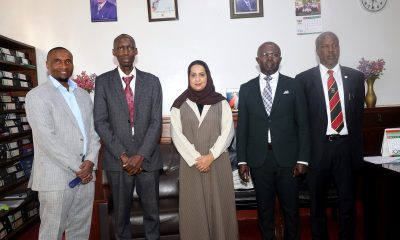

Mak CEES discusses partnership with King Salman Global Academy for the Arabic Language
-
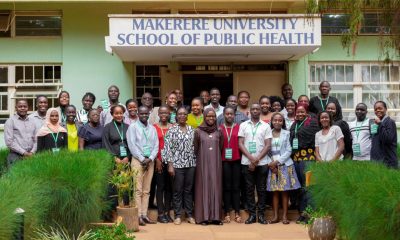

MakSPH, DJC Launch Short Course on Health Communication
-
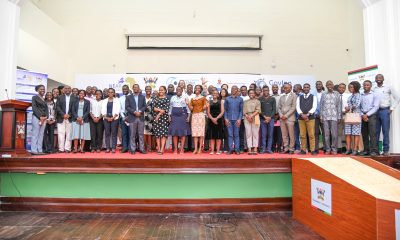

Strengthening Europe-Africa Higher Education Collaboration through the NEAR-ER Project
-
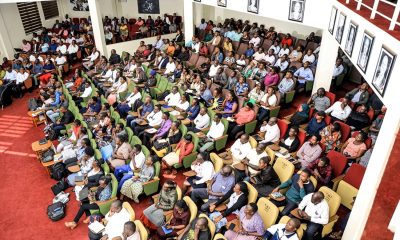

Call for Abstracts: 2nd East African Symposium and Expo on Trauma, Injuries, and Emergency Care – 2025
-


CoNAS Participates in the 2025 National Science Week Exhibition
Health
Emorimor Calls for Makerere to Upgrade Parenting Course
Published
8 hours agoon
June 30, 2025By
Zaam Ssali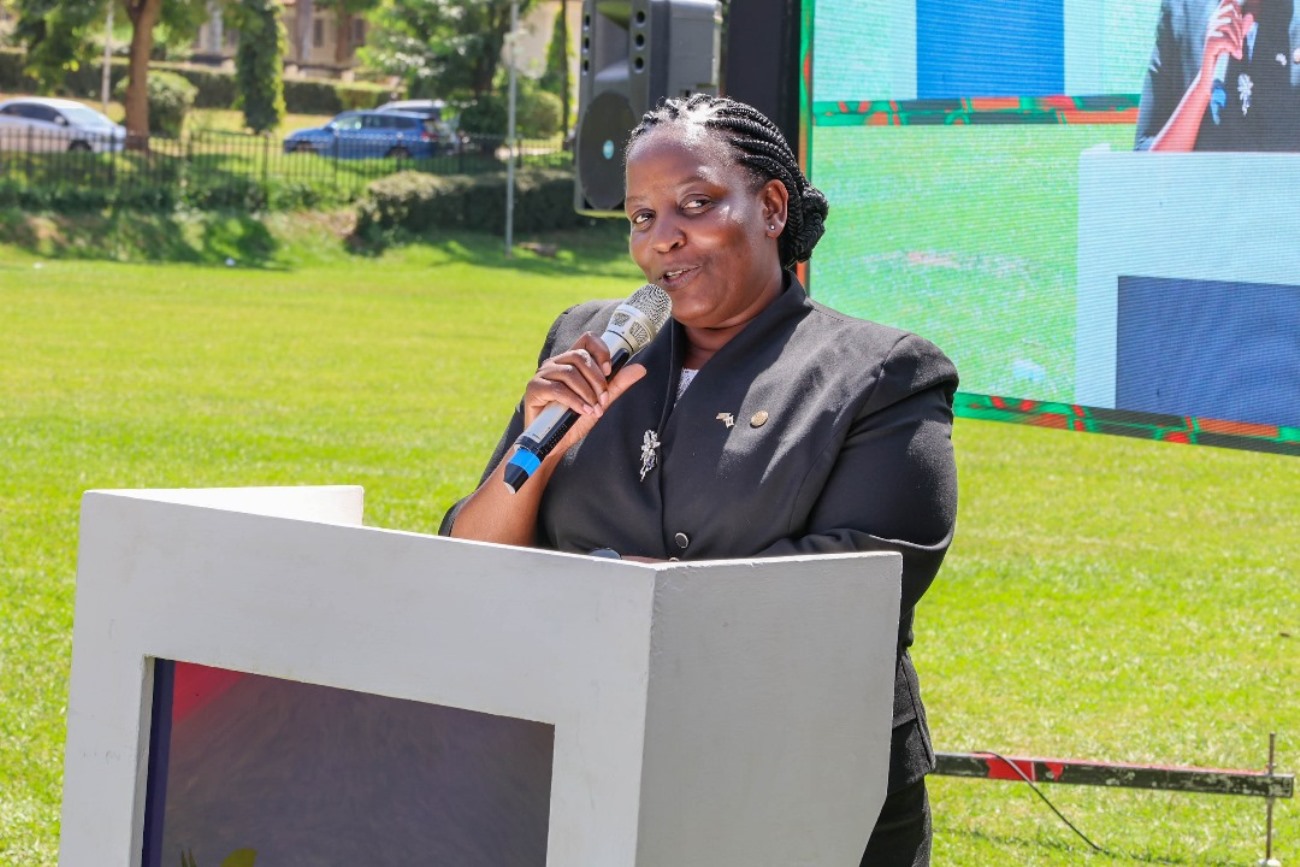
The Iteso Cultural Leader, His Highness Emorimor Papa Paul Sande Emolot, has called on Makerere University to elevate the Science of Designing, Adaptation, and Implementation of Evidence-Based Parenting Interventions course into a fully-fledged programme. This, he argued, would strengthen the capacity of practitioners implementing parenting interventions across Uganda.
Speaking at a graduation ceremony held on 11th June 2025 at Makerere University where 35 practitioners completed the 12-week course, Emorimor Papa Emolot emphasized the transformative power of effective parenting. He urged aspiring parents and advocates of the Parenting for Respectability model to enroll in the course.
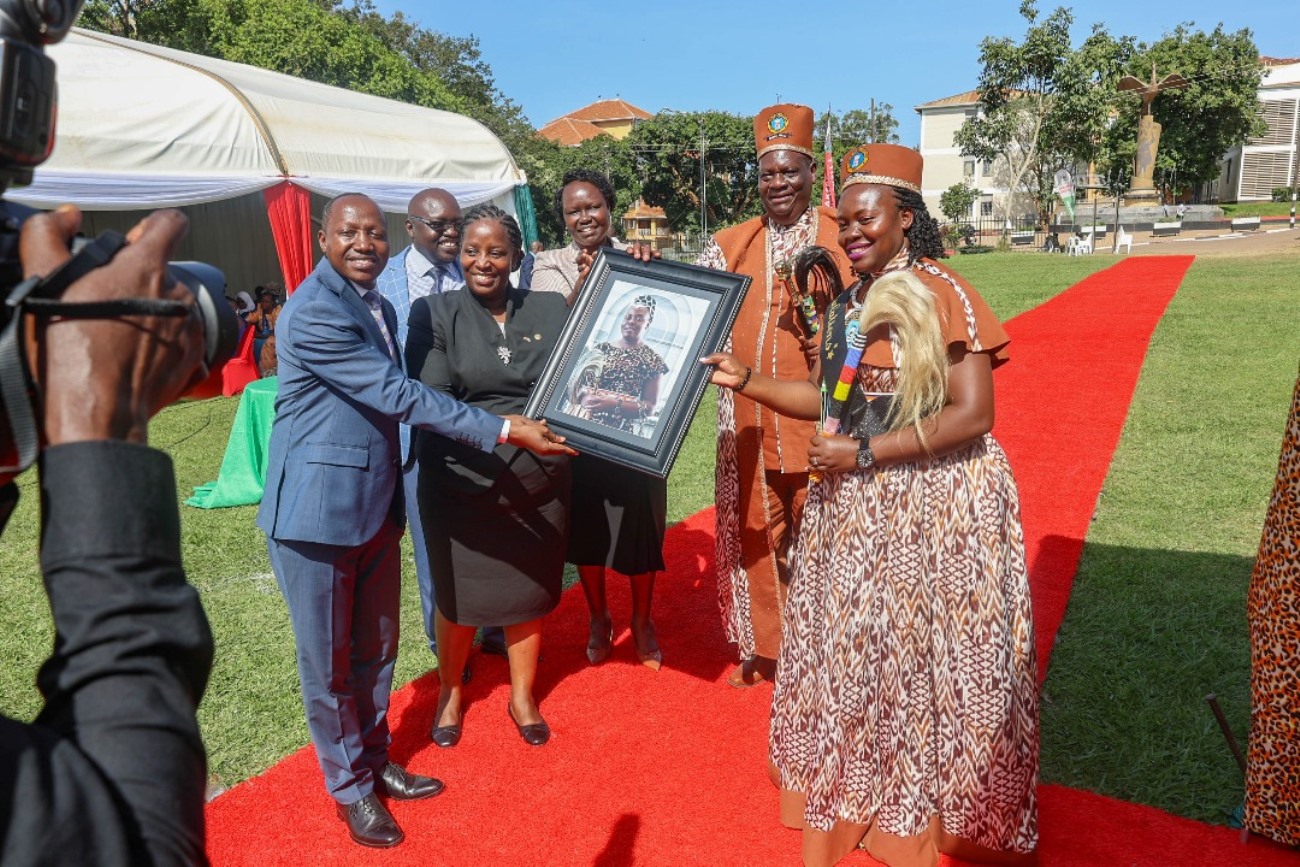
Citing the impact in his own sub-county and village, the cultural leader revealed that over 800 families had already benefited from the programme.
“We now see peace and love in homes where there was once conflict. Without good parenting, you risk raising animals instead of children,” he passionately stated.
He praised the course for equipping practitioners, policymakers, and researchers with the skills needed to design culturally sensitive, evidence-based parenting interventions tailored to Uganda’s context. Among the notable graduates was Her Royal Majesty Juliet Among Emolot Atomeileng Akaliat Toto, who reaffirmed her commitment to advancing family-strengthening initiatives using the skills and knowledge acquired.
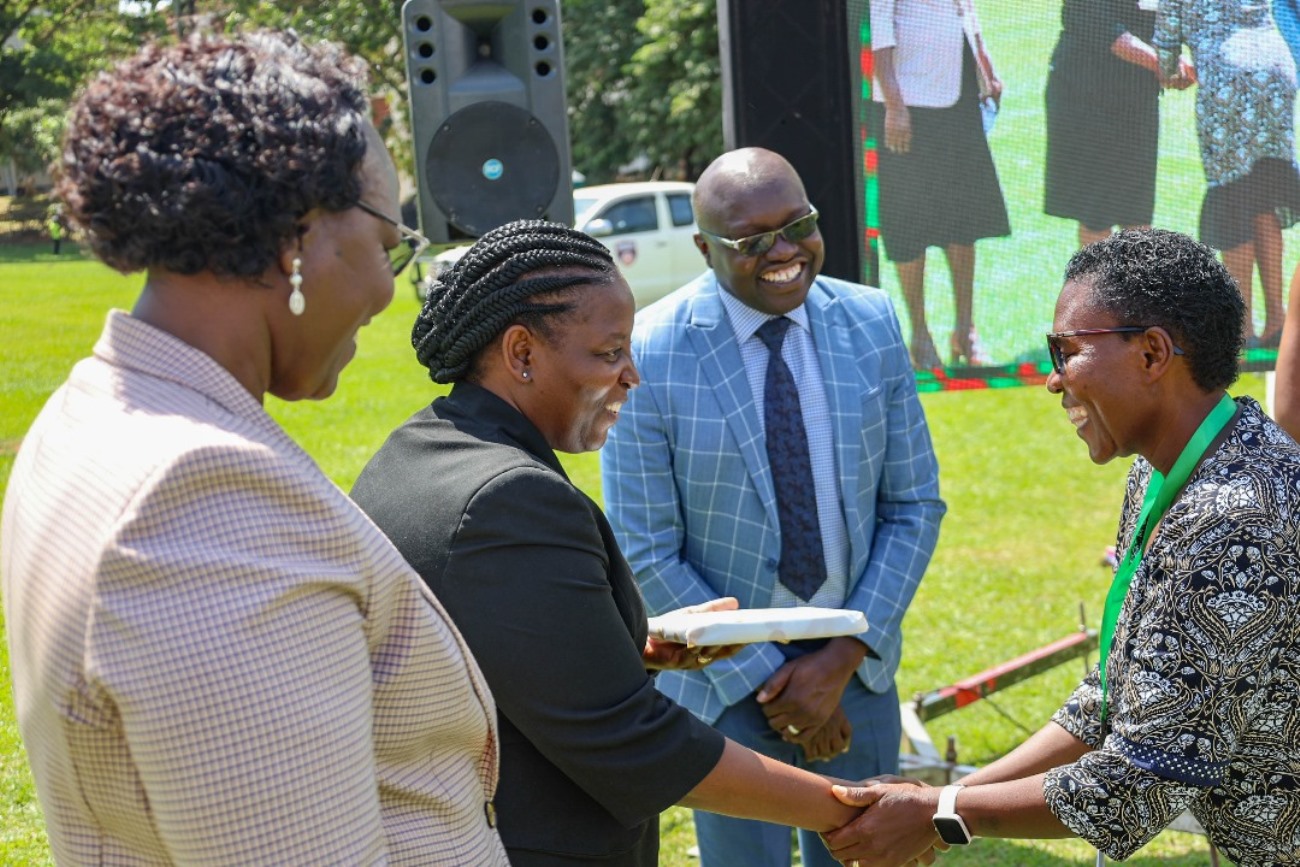
Dr. Godfrey Siu, Senior Lecturer and Course Leader at Makerere University, described the course as a timely intervention. During this remarks, Dr. Siu described the event as a significant milestone in advancing the field of evidence based parenting intervention and family strengthening in Uganda.
“This course is meant to empower you as practitioners, policy makers and all those involved in development and implementation of parenting work. It provides both theoretical knowledge and practical tools essential for developing high quality interventions”, Dr. Siu noted. He urged the pioneer group to carry forward the expertise as champions of designing, adaptation and implementation of evidence parenting interventions.
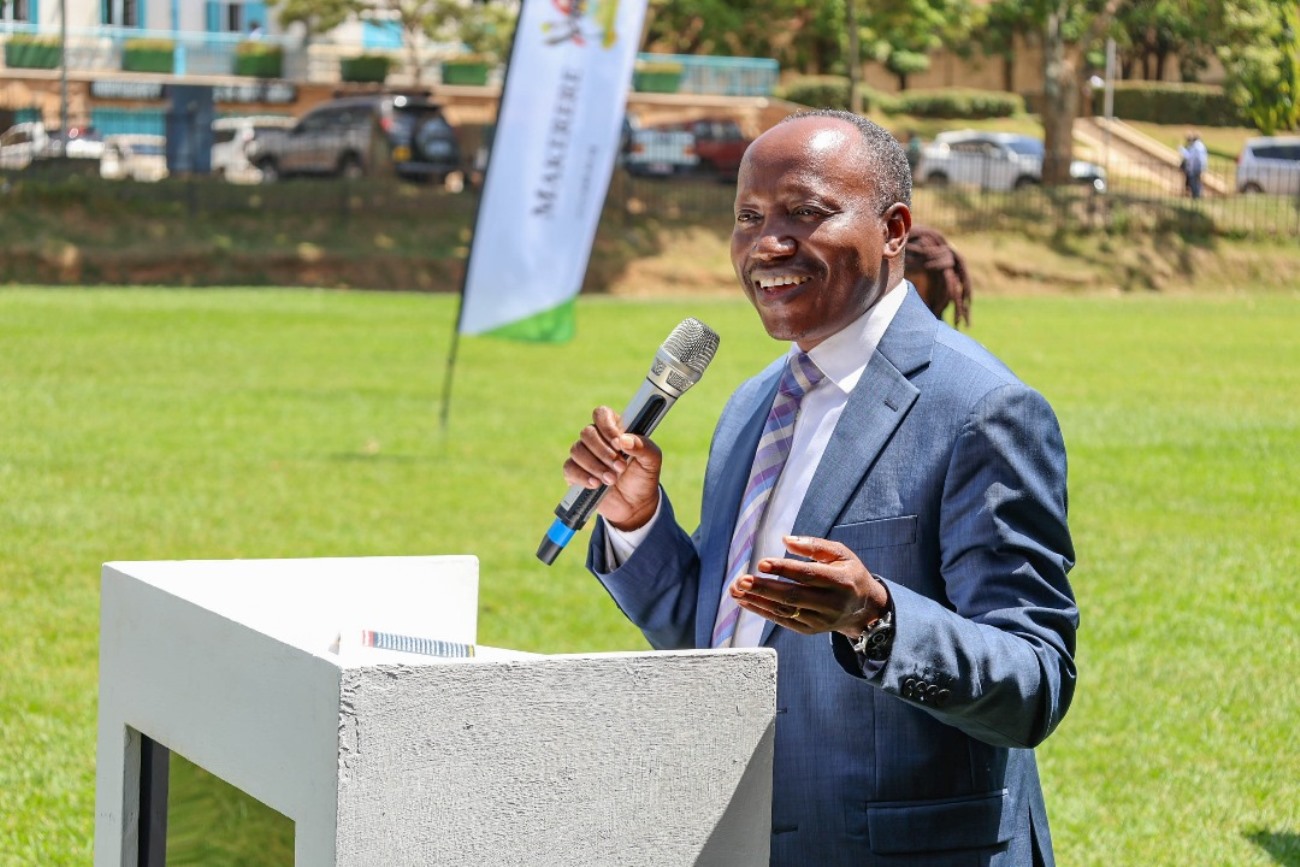
Representing the Permanent Secretary of the Ministry of Gender, Labour and Social Development, Dr. Aggrey David Kibenge, Juliana Naumo, Commissioner for Culture and Family Affairs, said the course supports the government’s agenda to address negative social outcomes affecting families.
“By grounding parenting in research, harmonizing policy with practice, and advocating for equity, we will ensure no family is left behind,” she said. “Cross-sectoral collaboration is key to unlocking transformative change.”
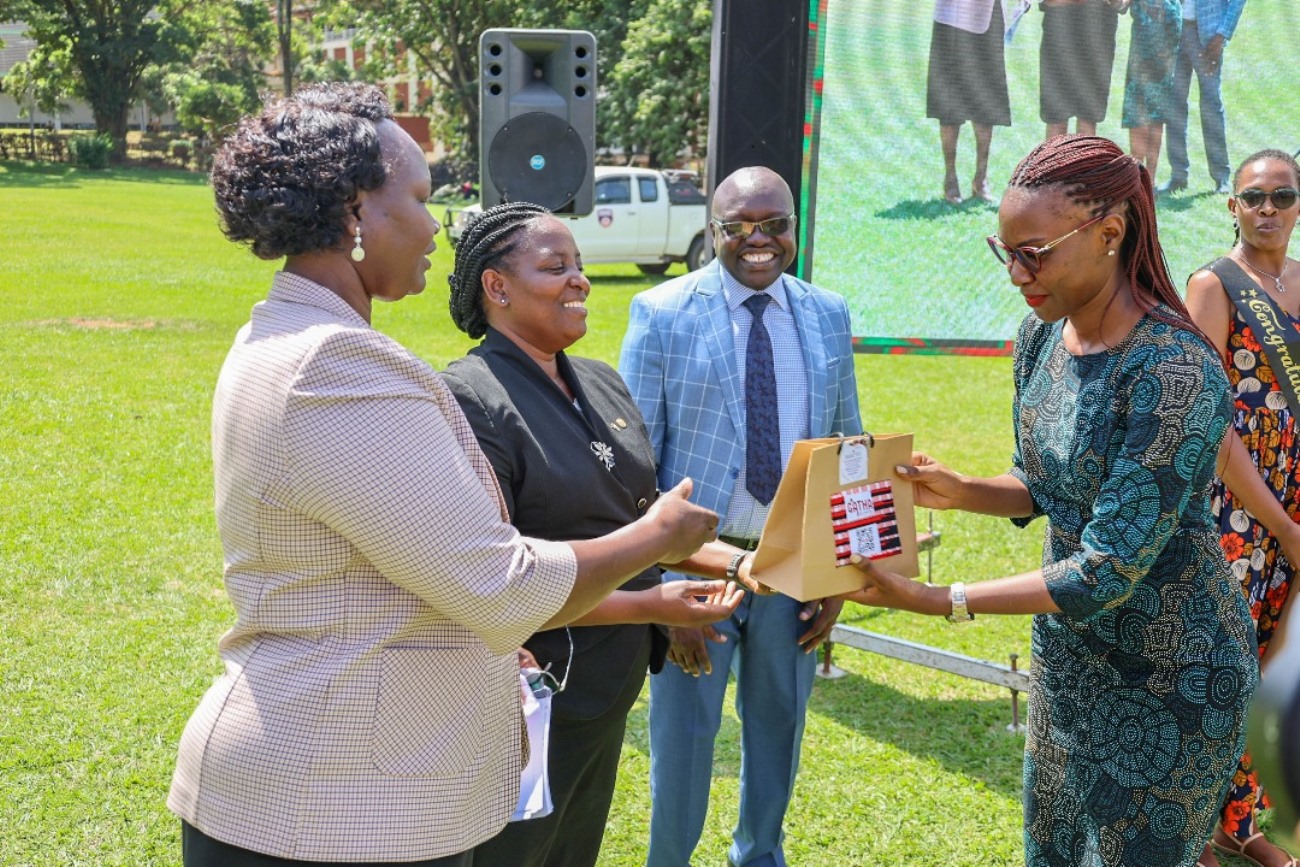
Ms. Naumo highlighted the government’s commitment—both technical and financial—to support outstanding student projects from the course. She stressed the importance of equipping professionals with the skills to bridge gaps between research and practice for consistent, high-quality parenting support across Uganda. While delivering the Vice chancellors speech by Dr. Helen Nambalirwa, Principal of the CHUSS, Prof. Barnabas Nawangwe commended the graduates as a beacon of hope.
“At a time when parenting faces challenges like digital distractions, changing societal norms, and a rising mental health crisis, Makerere reaffirms its support for interventions that drive the societal transformation we desire,” Nawangwe stated.
Prof. Richard Idro, Deputy Principal of the College of Health Sciences, acknowledged the growing parenting challenges in Uganda and the region, adding that the course was a major step towards standardizing parenting interventions nationwide.

He applauded the Child Health and Development Centre (CHDC) for leading this paramount and critical initiative.
Mr. Hosea Katende, Course Administrator at CHDC, emphasized the importance of integrating systematic methods, ethical principles, robust evidence, and collaboration to create lasting impact in parenting.
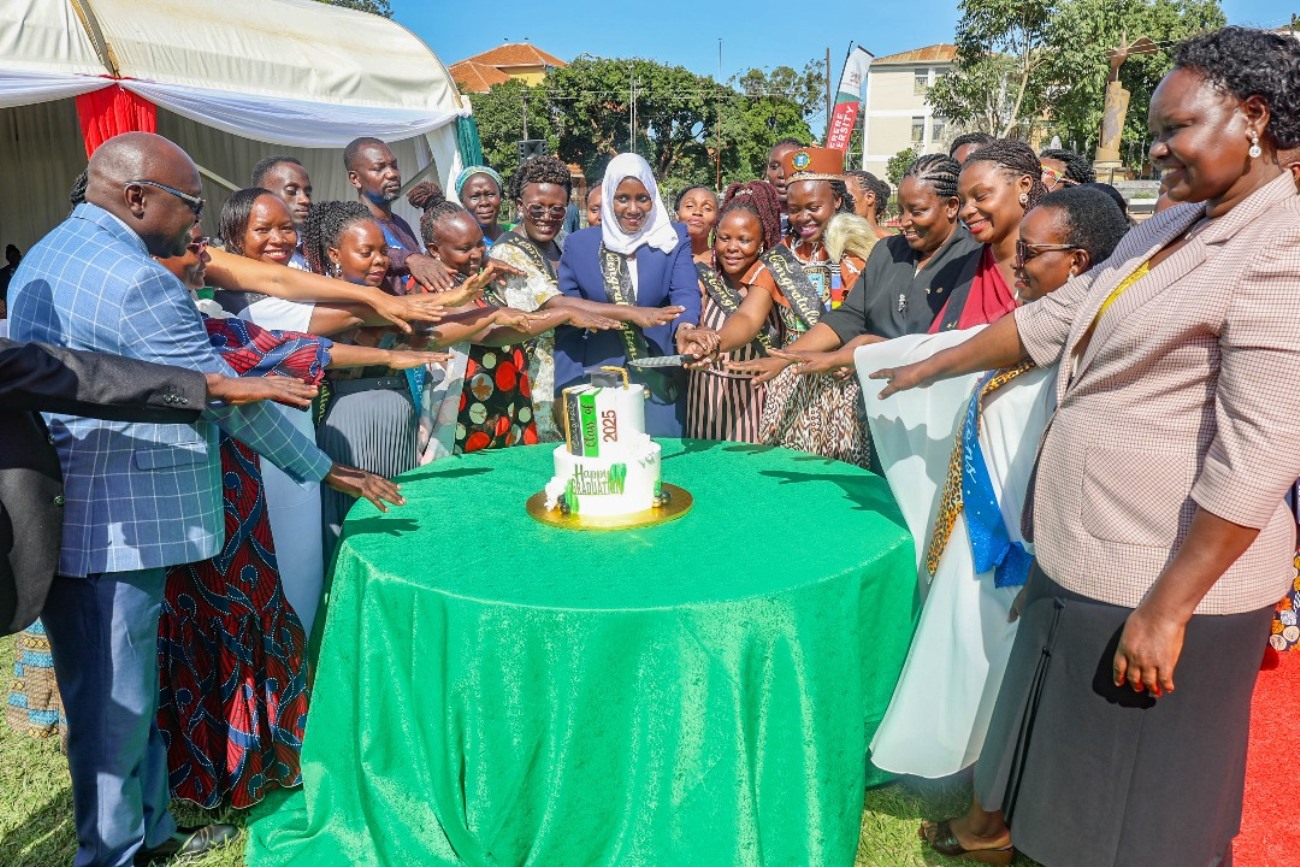
Dr. Aggrey Dhabangi, Lecturer at CHDC, representing Dr. Herbert Muyinda, Director of CHDC, acknowledged the contributions of partners such as the ELMA Foundation and Echidna Giving for their financial and capacity-building support. He also appreciated the Ministry of Gender, Labour and Social Development, among other stakeholders, for their technical guidance in the programme’s successful implementation.
Dr. Dhabangi extended gratitude to cultural institutions, especially the Kingdom of Teso, and acknowledged growing collaborations with other cultural institutions such as the Kingdom of Acholi, in the shared mission of building strong families as the foundation of Uganda’s future.
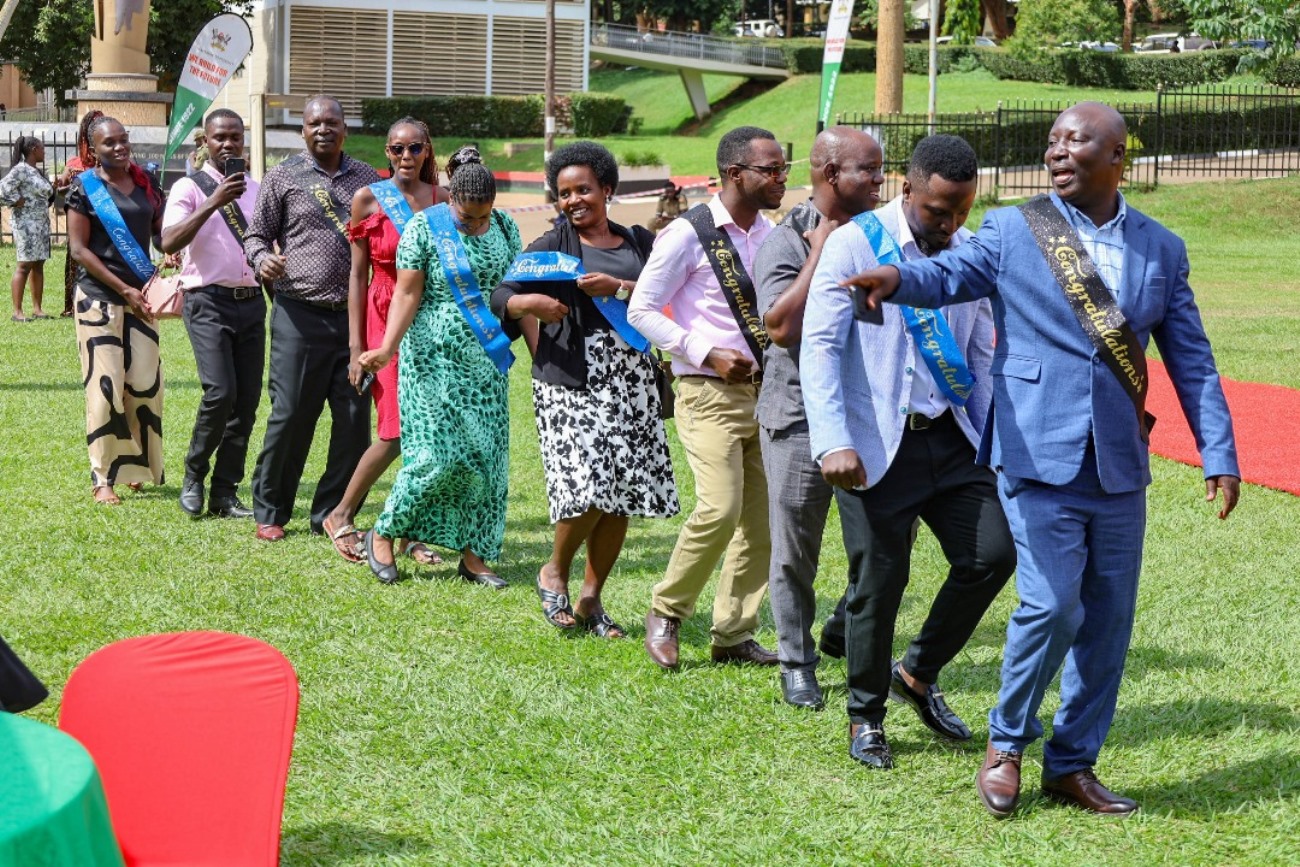
He extended his heartfelt gratitude to cultural institutions, especially the Kingdom of Teso, and others kingdoms such as the Kingdom of Acholi, in building Uganda’s future through creating strong families. Nuruh Mbalyowere, a Rehabilitation and Reintegration Officer with the Uganda Prisons Service, was honored for developing the best parenting intervention titled “Parenting Behind Prison Bars.” She expressed her intention to apply the knowledge gained both at home and in her workplace.
Health
MakSPH, DJC Launch Short Course on Health Communication
Published
1 week agoon
June 20, 2025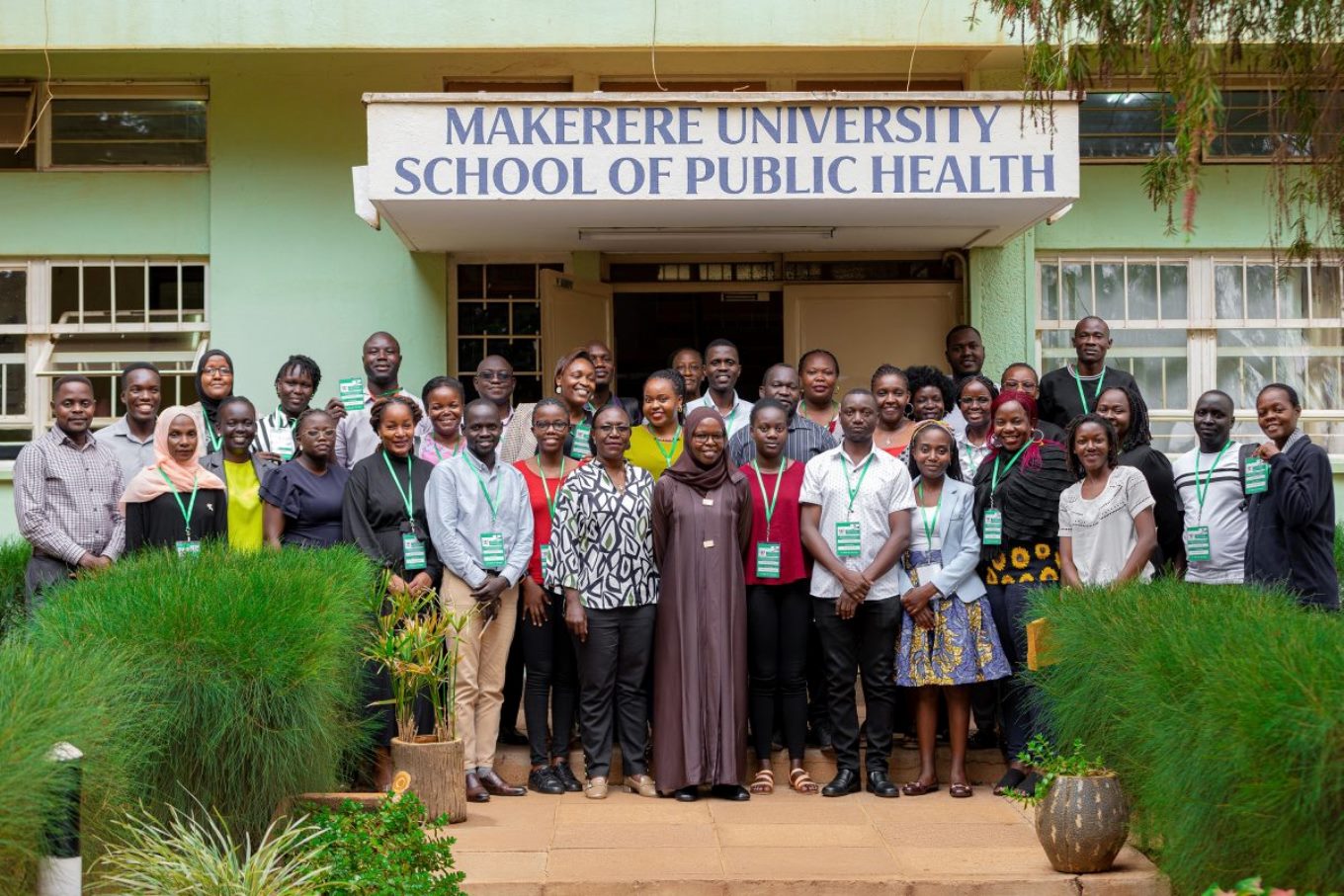
By Okeya John and Primrose Nabankema
The intensive one-month course, running for the first time from June 5 to July 24, 2025, is jointly offered by Makerere University School of Public Health (MakSPH)’s Department of Community Health and Behavioural Sciences (CHBS) and the Department of Journalism and Communication (DJC) at the School of Languages, Literature, and Communication (SLLC), co-designed in 2024 with support from the Rockefeller Foundation through Amref Health Africa.
It seeks to equip healthcare providers at the community level, public health and environmental health practitioners, communication specialists, health educators, community development officers, social scientists, and policy makers, among others, with strategic communication skills to improve public health messaging, strengthen community engagement, and support evidence-based interventions, ultimately empowering participants to effectively engage communities and improve population health outcomes across Uganda and the region.
Launching the course, the heads of the Department of Journalism and Communication and the Department of Community Health and Behavioural Sciences noted that participants who complete the short course will gain practical tools to influence behaviour change, build trust, and deliver timely, accurate, and relevant health information to the communities they serve. The first cohort attracted more than 60 applicants, with 36 reporting for the opening in-person session on June 5, 2025, at MakSPH in Mulago. Between now and July, participants will undergo a hands-on, multidisciplinary learning experience within the Certificate in Health Communication and Community Engagement program, which combines theory and practice.
Among the participants in the first cohort of the certificate course, designed as a pilot for the anticipated Master of Health Promotion and Communication to be jointly offered by the two departments at Makerere University, is Ms. Maureen Kisaakye, a medical laboratory technologist specialising in microbiology and antimicrobial resistance (AMR), and currently pursuing a Master’s in Immunology and Clinical Microbiology at Makerere. She is driven by a passion to help reverse the rising tide of AMR, a growing global health threat where drugs that once worked are no longer effective. Kisaakye is particularly concerned about common infections, like urinary tract infections, becoming increasingly resistant and harder to treat.
“I enrolled in this course because I’m an advocate against antimicrobial resistance, and it came at a time when I needed to deepen my knowledge on how to implement our projects more effectively and engage with communities. The experience has broadened my understanding of AMR and its impact on society, and strengthened my passion for community-driven health initiatives and advocacy,” Kisaakye said, explaining why she enrolled for the short course.
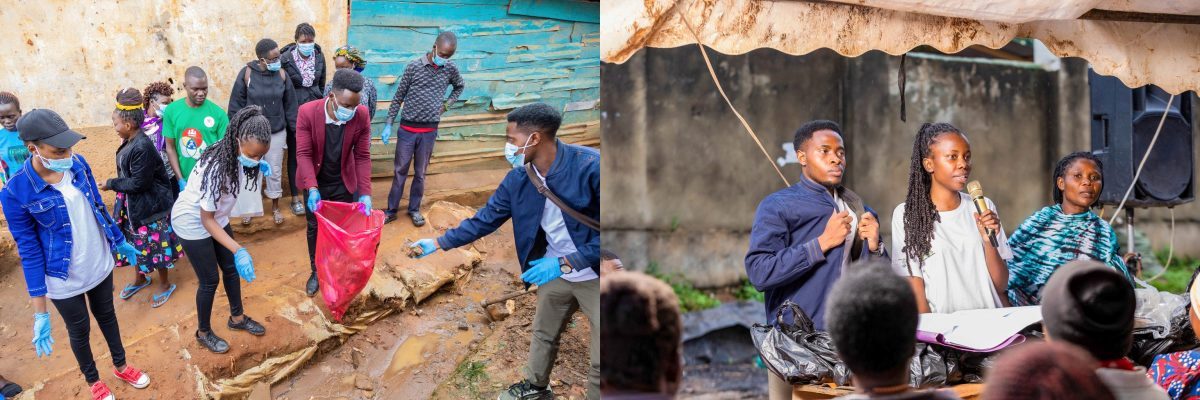
Kisaakye’s work in antimicrobial resistance extends beyond the lab. Having earned her degree in medical laboratory science from Mbarara University of Science and Technology, she founded Impala Tech Research in 2024 to drive impact and save lives. She has led grassroots AMR campaigns that integrate antimicrobial stewardship with water, sanitation, and hygiene (WASH) education in underserved urban communities, including the informal settlements in Kampala. She also has since designed peer-led initiatives that empower university students as AMR Champions, building a network of informed youth advocates. Kisaakye believes the health communication course will sharpen her ability to design and deliver impactful, community-centred interventions in response to the growing threat of drug resistance.
“The department collaborates with many partners within and beyond the University, including the School of Public Health, where we are working to develop the subfield of health communication and promotion. Our goal is to train specialists in this area and build a community of practice, something we have each been doing in our own spaces. There’s a lot of work ahead, and COVID-19 showed us just how urgently we need a generation trained to do this kind of work, and to do it very well,” said Dr. Aisha Nakiwala, Head of the Department of Journalism and Communication, during the opening of the short course on June 5.
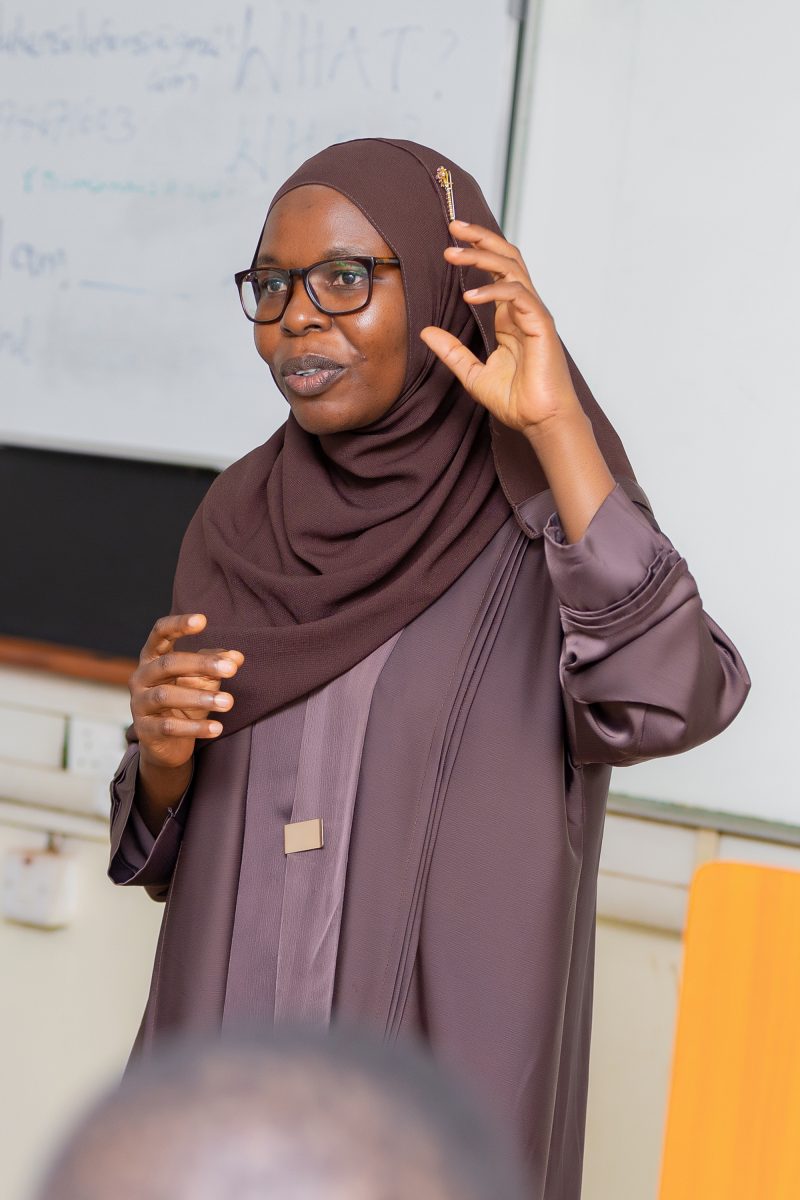
She assured participants they were in good hands and underscored the importance of the partnership between the Department of Journalism and Communication and the School of Public Health, describing it as a vital collaboration that brings together strategic communication and public health expertise. This dynamic, multidisciplinary approach, she noted, is essential to developing practical solutions that empower communities, strengthen health systems, and ultimately improve livelihoods.
The course offers a hands-on, multidisciplinary learning experience, with participants intended to explore key modules including Health Communication and Promotion, Risk Communication, Smart Advocacy, Community Mapping, Community Mobilisation and Empowerment, and Strategies for Community Engagement. The course combines theory with real-world application, and its assessment includes a field-based project and a final exam.
“You are our first cohort. We are seeing the fruits of our efforts in bringing this short course to life. It was born out of a joint initiative to develop a Master’s programme in Health Promotion and Communication,” said Dr. Christine Nalwadda, Head of the Department of Community Health and Behavioural Sciences. “We carried out extensive consultations with our different key stakeholders during the process and discovered a real need for such a course. It was the stakeholders who even named it; this course name didn’t come from us.”
For Kisaakye, by the end of the course in July, she hopes to have sharpened her skills in health promotion and strategic communication, particularly in crafting targeted messages that help individuals and communities effectively respond to threats such as antimicrobial resistance. She also aims to gain practical experience in designing, implementing, and evaluating community health initiatives that can strengthen her advocacy and drive lasting impact.
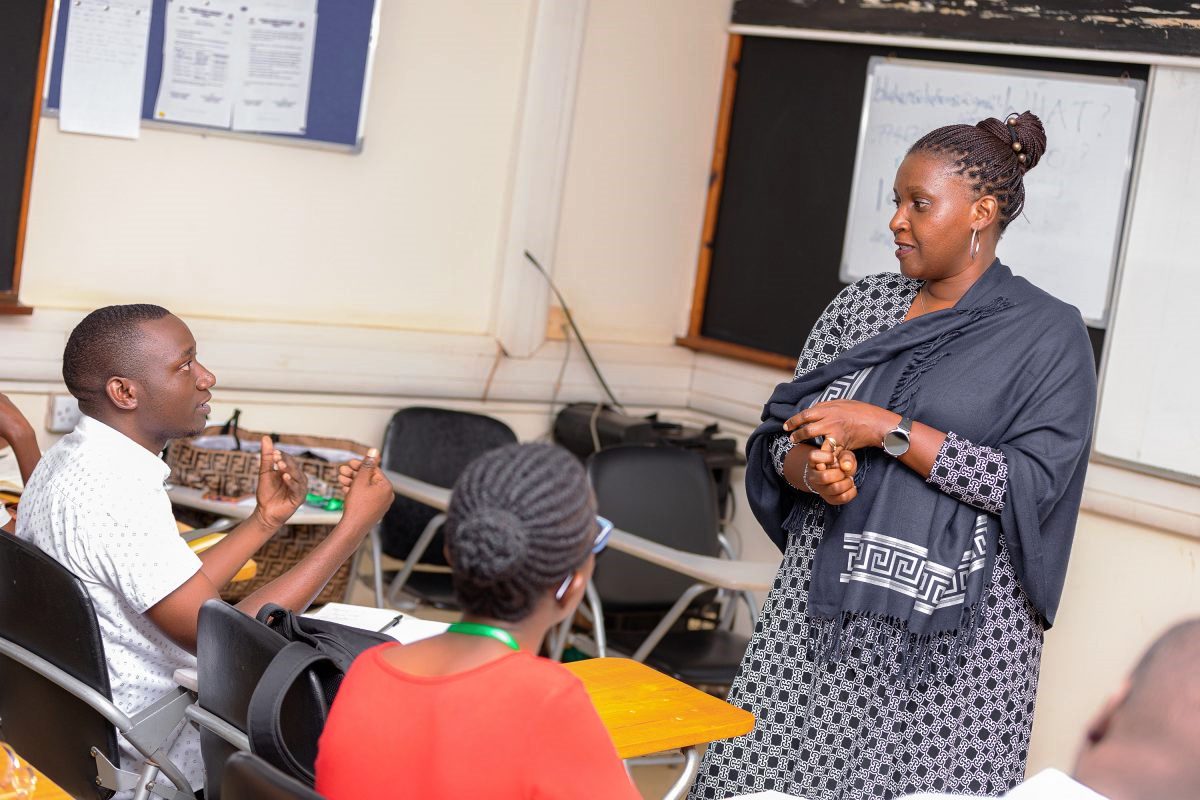
Health
Call for Abstracts: 2nd East African Symposium and Expo on Trauma, Injuries, and Emergency Care – 2025
Published
2 weeks agoon
June 19, 2025By
Mak Editor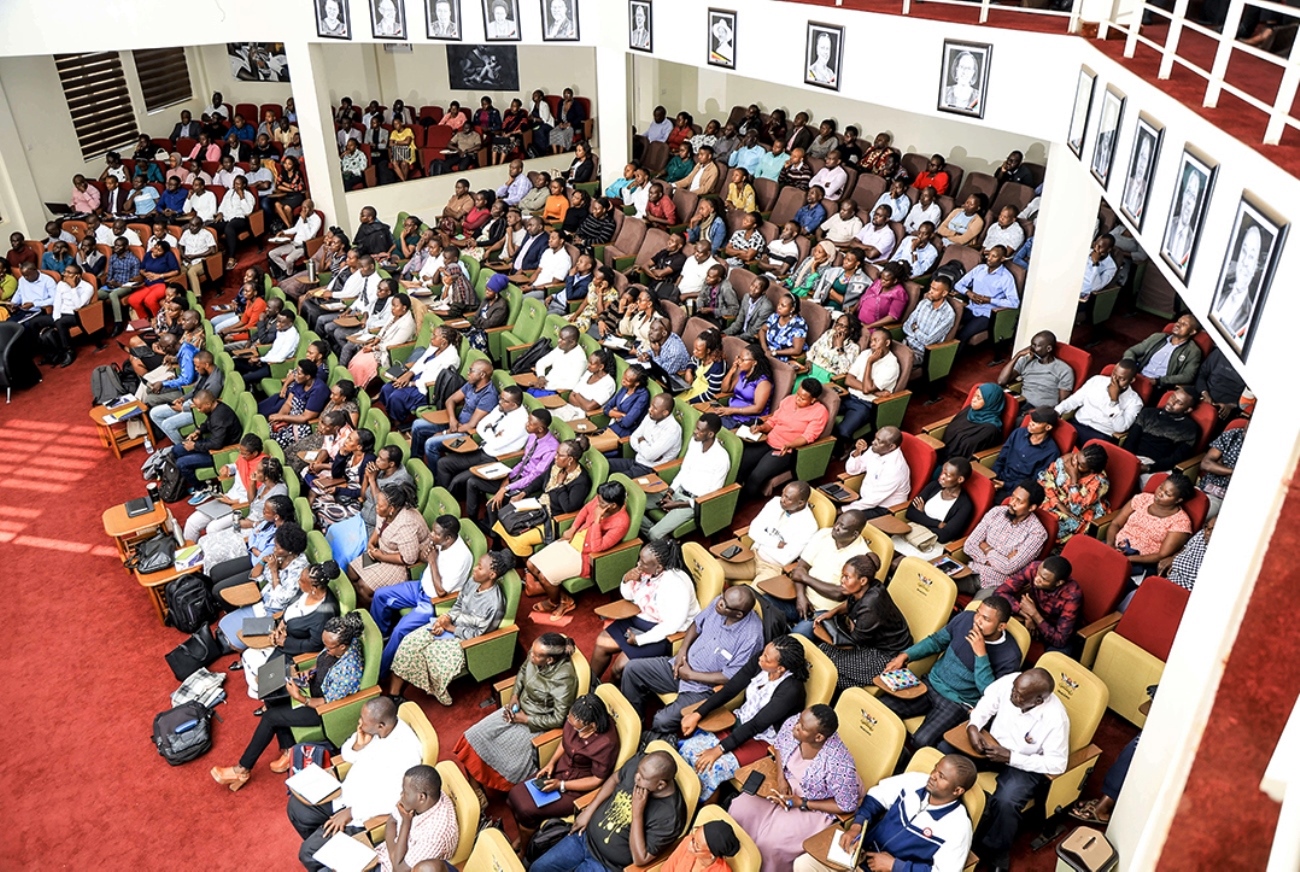
The Makerere University School of Public Health (MakSPH) is excited to invite researchers, professionals, and students to be part of an inspiring and impactful event!
Venue: School of Public Health Auditorium, Makerere University Main Campus
Dates: August 7–8, 2025
Theme: “Understanding the burden and impact of injuries in East Africa to improve Emergency Care preparedness, mitigation, and response.”
Submit Your Abstracts Now!
Join the conversation that drives change in trauma and emergency care across East Africa. Share your research, innovations, and insights that can shape the future of healthcare response in our region.
Submission Deadline: July 10, 2025
Submit here: triadcommunications@musph.ac.ug
Register to Attend: https://aapug.org/east-african-symposium-and-expo-on-trauma-injury-disability-and-emergency-care-2025/
Together, let’s drive change and improve lives through research and collaboration. Don’t miss this opportunity to make a difference!
Trending
-

 General3 days ago
General3 days agoMature Age Scheme Exam Results for 2025/2026
-

 General6 days ago
General6 days agoFreshers’ Joining Instructions 2025/2026
-

 General1 week ago
General1 week agoMastercard Foundation Board pays its inaugural visit to Makerere University
-

 General1 week ago
General1 week agoUVCF Makes Case for HEAC Programme
-

 Natural Sciences2 weeks ago
Natural Sciences2 weeks agoCoNAS Participates in the 2025 National Science Week Exhibition
